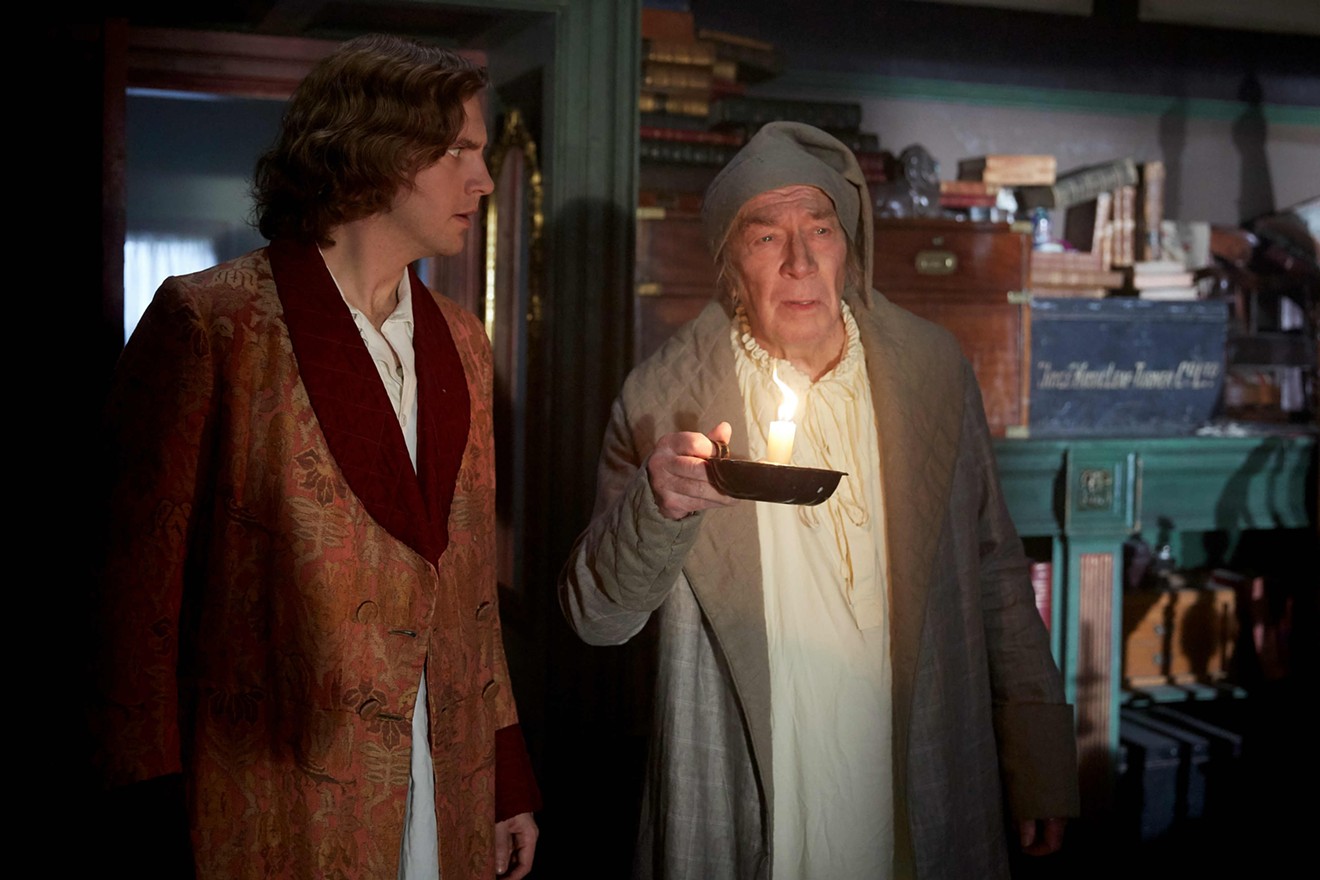Charles Dickens wrote the world’s second most famous Christmas story in six weeks in late 1843. He had plotted out his A Christmas Carol on his epic midnight constitutionals through the streets of London; he is reported to have said that he laughed and wept as he walked, moved and amused by his characters. He also was thunderously angry, as always, at his country’s cruel treatment of the poor, especially children, those unfortunates who for want of food so often found themselves toiling in the most miserable of factories. The book, novella-length, appeared in a finely bound, gold-lettered edition six days before Christmas and sold out its 6,000-copy run before the holiday — pretty posh for a one-time factory worker himself. Much has been made of the fact that Dickens had hoped for a handsome return upon publication, hoping for at least — as some biographers have stated — a plum 1,000 pounds to settle debts. Instead, after that fine binding and gold lettering cut into the profits, and after the expense of 700 pounds bringing suit against bootleggers of the book, Dickens had barely broken even within a year.
Since then, of course, Dickens’ first (of four) Christmas books has been inescapable, perennially adapted and performed, often during his life by the author himself. Every sitcom I saw in my childhood seemed to have a Christmas Carol parody; get a couple of theater critics together, and they can compare Carols they’ve endured like the shark hunters sharing their scars in Jaws. What has stuck with us, as a culture, is the tale’s spookiness and warmth, its spirit of redemption, its idea of Christmas as a celebration of family and charity. Charity, of course, long ago became something more like an economy-saving orgy of gift-card purchasing. That might speak to why the Carol remains so popular — it offers a chance to soak in what we say the holiday is actually about.
Bharat Nalluri’s new film The Man Who Invented Christmas is a spirited fiction about the creation of the fiction that created our idea of the holiday. Here, a dashing young Dickens (an earnest Dan Stevens) races against the clock to find an ending for his Christmas Carol. Despite having hit on the idea of the ghosts of Christmas past, present, and future, he just can’t conceive of a way to unthaw the heart of that miser Scrooge. The film’s sprightly evocations of Victorian London tend toward the cheery and pristine, the proudly stagebound; Nalluri’s emphasis is on amateur theatrical performances, magic-lantern projections and comically competitive authors. (William Thackeray can quote chapter and verse the bad reviews of Dickens’ Martin Chuzzlewit.) Dickens, a bit of a dandy, wears his crispest shirts and floppiest bow even when writing alone in his study. Off to secure a loan to finance the publication of his new work, he barges into a tailor’s shop and cries out “Your finest cravat!”
The movie — based on Les Standiford’s novel — is pleasantly simpleminded, often assembled from parts of other movies. Our young dreamer is told by his publishers, “What we mean to say, Mr. Dickens, is there’s not much of a market for Christmas books.” We see little of the real Dickens’ rage at London’s poverty, but his family’s own history of debt and labor haunts him, a bit of backstory he must learn to get over. Nalluri leans on the idea of London as Dickens’ source of inspiration, but he prefers lit-class comedy to examination of injustice. A peculiarly tall and ashen waiter is named Marley, and Dickens jots down the name. Later, Dickens’ own father, a frequent debtor, will speak lines (“Due to pecuniary complications of a most complicated nature …”) meant to suggest David Copperfield’s immortal Mr. Micawber.
In this telling, Dickens begins composing A Christmas Carol under intense deadline pressure, with no idea what he’s going to write. The filmmakers never quite muster a full-length amble through the city, but London still comes to his rescue: Dickens encounters a miser, hits on “humbug!” and soon, in his study, conceives of the name Scrooge. At that point, Christopher Plummer appears in full Scrooge getup — black coat, black hat, countenance as sourly lined as in John Leech’s original illustrations. Plummer is marvelous as he expectorates the man’s spiteful opinions.
This Dickens, like a present-day therapist or improv comic, immediately elects to engage his character in a word association game. “Children,” the author says. “Nuisance,” his creation snarls, a line that might sting more if the real Dickens had not so often thought of his own offspring as the same. (The Man Who Invented Christmas lines the kiddos up, in one scene, so their father can regard each in turn, noting one quality of each like Galadriel sending off the Fellowship of the Ring.)
The scene, the film’s best, carries on. “Workhouse,” says Dickens.
“Useful,” says Scrooge.
“Christmas,” says Dickens.
And cruel old Scrooge slows a bit, mulls the word, and then flatly repeats it, his eyes far away.
This Scrooge is an old softy from the start. I’ve long suspected that this is another reason for the Carol’s persistent popularity. It’s comforting to think, in a world of inequality, that spirits of decency might one day visit the world’s miserly job creators and remind them of their — and our — essential humanity. In the popular conception, Scrooge is the monstrous anomaly of capitalism rather than its apogee. He’s not representative of a class who has convinced itself of the moral righteousness of making hellish the lives of the poor; he’s the bug in the system that just needs a bit of fixing, a promise that if one bad man can be brought around to the holiday spirit, the world can be remade. Don’t expect here the ghost Marley’s stirring rejoinder to Scrooge’s charge that he was a man of business: "Mankind was my business; charity, mercy, forbearance and benevolence were, all, my business.”
The Man Who Invented Christmas does little to illuminate these truths, but it’s still a likable lite-Victorian dip into the milieu — a bit of fun and dress-up, an alternative to being ground once again through the whole three-ghosts rigamarole. It builds, of course, to a crisis of the soul in a cemetery, and then to feasts and good cheer and the Victorian fad of decorating trees indoors. It never argues that Dickens invented Christmas, precisely. But I wish it had an argument about why Christmas needed inventing — and why the great author believed that men’s hearts needed to change.
[
{
"name": "Air - MediumRectangle - Inline Content - Mobile Display Size",
"component": "19274298",
"insertPoint": "2",
"requiredCountToDisplay": "2"
},{
"name": "Editor Picks",
"component": "17482312",
"insertPoint": "4",
"requiredCountToDisplay": "1"
},{
"name": "Inline Links",
"component": "18711090",
"insertPoint": "8th",
"startingPoint": 8,
"requiredCountToDisplay": "7",
"maxInsertions": 25
},{
"name": "Air - MediumRectangle - Combo - Inline Content",
"component": "17482310",
"insertPoint": "8th",
"startingPoint": 8,
"requiredCountToDisplay": "7",
"maxInsertions": 25
},{
"name": "Inline Links",
"component": "18711090",
"insertPoint": "8th",
"startingPoint": 12,
"requiredCountToDisplay": "11",
"maxInsertions": 25
},{
"name": "Air - Leaderboard Tower - Combo - Inline Content",
"component": "17482313",
"insertPoint": "8th",
"startingPoint": 12,
"requiredCountToDisplay": "11",
"maxInsertions": 25
}
]












